
Large refrigerating systems are one of the greatest things mankind ever came up with. Conserving food is a necessity since no one really likes their food spoiled. And although we’ve got used to refrigerating basically everything that fits in our beloved machines, not all foods are meant to be stored in fridges.
Some foods get a change in flavor and quality after being refrigerated, and most commonly, those foods are the ones we use the most. So before you jump into storing your ingredients in your fridge right after shopping, find out first which 15 foods shouldn’t be refrigerated.
1. Potatoes
Legend has it that potatoes should be kept in a dark, cool place. Although that may be true, a lot of people confuse “cool” with “cold.”
The cold temperatures of refrigerators can turn potatoes’ starch into sugar way more quickly than you can say “mash potato.”
Instead of storing your potatoes in the fridge, try putting them in a paper bag in a cool and dark place somewhere in your home, like you’re supposed to.
The paper bag issue is also important, since potatoes can receive more air in paper bags than they can in plastic ones.
Click here to order a Potato Masher
This also slows down the deterioration process. Say goodbye to sweet or gritty potatoes!
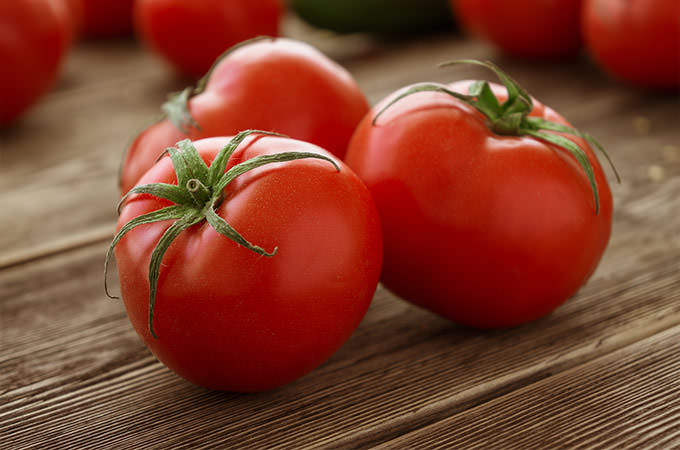
2. Tomatoes
Contrary to popular belief, tomatoes shouldn’t ever be refrigerated because they will lose their flavor.
If you ever wondered why this otherwise delicious red fruit (yes, tomatoes are fruits – get over it) don’t quite taste the same after a few days in the fridge, you’ve got your answer.
The cold air in the refrigerator stops the tomatoes’ ripening process and thus ruins their flavor almost completely. Also, the cold air also impacts their texture by breaking down the membranes inside the tomatoes.
Find the perfect Vegetable Basket on Amazon
Instead of refrigerating them, keep your tomatoes in a basket or a glass bowl on the kitchen counter.
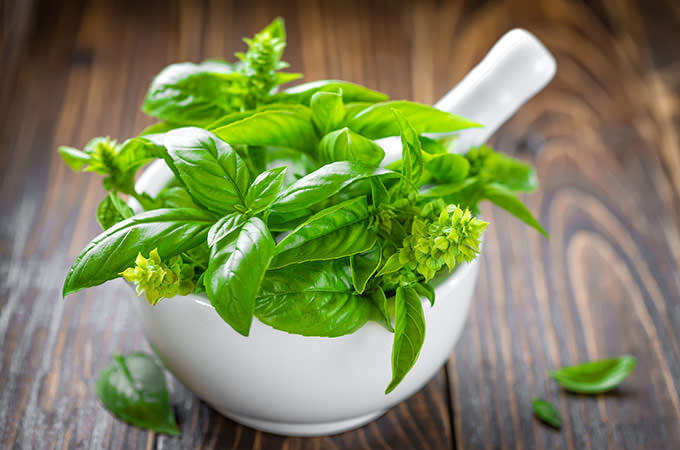
3. Basil
Basil does wonders for various meals. It’s one of the most consumed herbs in the world, and a personal favorite of many chefs. However, it’s also one of the most common mistakenly refrigerator-stored ingredients.
Keeping basil in the fridge has a number of problems attached to it. First of all, basil’s texture absorbs all the smells of the food that surrounds it.
Secondly, the cold air damages its special taste. Instead of keeping your basil in the fridge, opt for keeping it in a cup of fresh water outside of one.
Plant your own Basil – Order a Growing Kit here
However if you really need to keep it for a long period of time, there are a bunch of freezing tips for it.
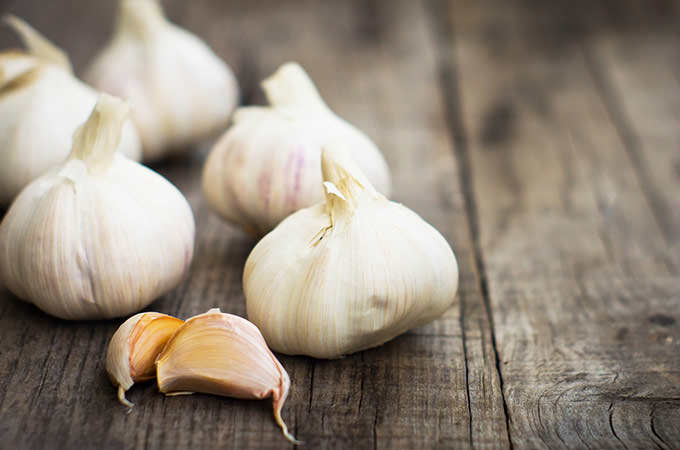
4. Garlic
This popular ingredient also has the same problem with refrigerating that potatoes do, and much like them, garlic should be kept in a cool and dark place instead.
When stored in the fridge, garlic starts to sprout and it can go off pretty quickly. It can also become pretty moldy, as well. When it comes to its texture, it will become rubbery-soft.
The biggest problem with refrigerated garlic is that you won’t even notice what’s actually going on by the looks of it – its exterior never changes.
Garlic Press and Peeler Set is available – Click here
So, keep yourself from getting surprised when you start chopping it for a meal, and keep your garlic in a dark, cool place.
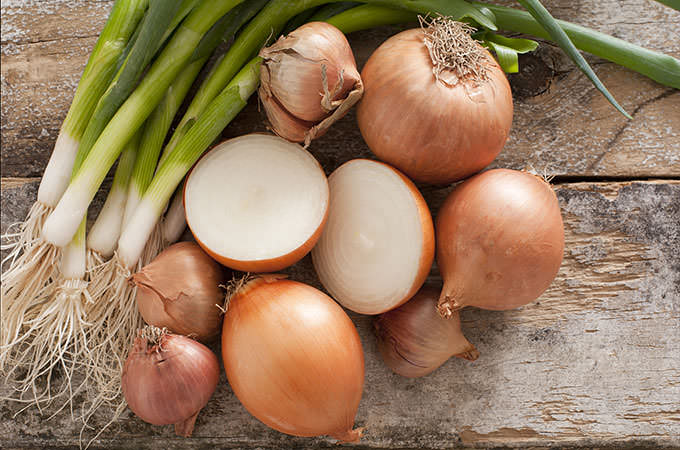
5. Onions
Oh, onions. There’s no ingredient like them – they can make even the most boring meals pop up with tasty deliciousness. However, they won’t do any good to your meals if you keep them in the fridge.
The moisture in them will make onions pretty soft, mushy and eventually moldy when combined with the fridge’s cold air, and the rest of your food stored there will soak up on their smell.
Instead of you usual “straight to the fridge” routine, put them them in a dry, cool and dark place.
Find the perfect Onion Chopper on Amazon
Keep in mind to separate them from potatoes, because both onions and potatoes deteriorate faster when stored together.
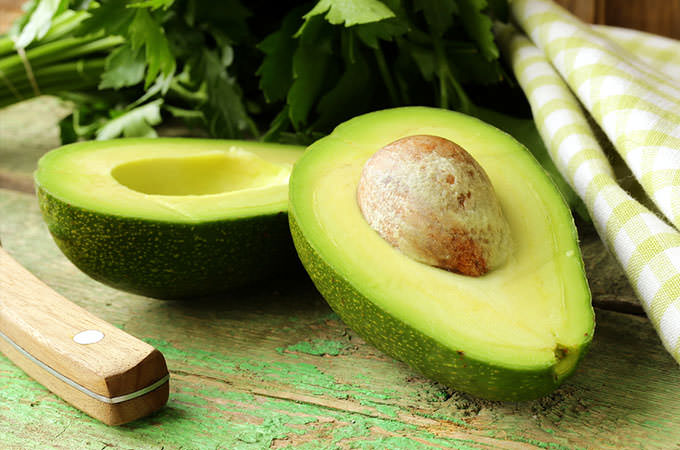
6. Avocado
Avocados can be a bit tricky when it comes to storing them, but it gets easier with a couple of tricks you need to know.
This amazing fruit should be kept in a fridge only if you bought them already ripe and you don’t need to use them right away.
However, if you bought them almost stone-hard and solid, with the idea of letting them ripen in your home, do not under any circumstance put them in the fridge because the cold air will stop the ripening.
Avocados need a lot of time to ripen properly, and if they don’t have that time – they just won’t taste great.
Refrigerators practically freeze avocados in time and stop them from ripening. Who would want to eat them like that?

7. Oils And Salad Dressings
Oils should not go in the fridge, because they tend to solidify at cooler temperatures and take a long time to become liquid again. This especially goes for olive and coconut oil.
It makes sense that oils condense and turn into a harder consistency, when you think about it. Besides, who wants butter in a bottle? That’s exactly what you’ll get if you refrigerate oils.
Instead, you should keep your oils in a cool and dark place. However, if you already made this mistake, just put the oil into the microwave for a quick burst to get its original consistency back.
This also goes for salad dressings, especially ones that are vinegar or oil based.
Oil Dispensers are available on Amazon
However, salad dressings that are cream, mayo or yogurt based should be kept in the fridge after all.
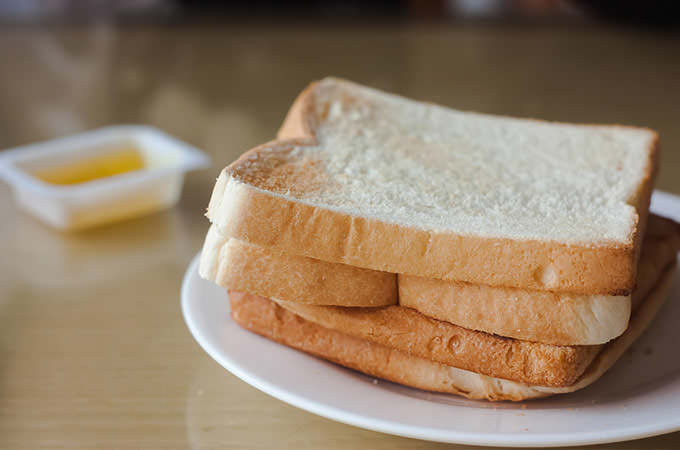
8. Bread
Although this is pretty straightforward to most people, some still make the mistake of storing their bread in a fridge.
Refrigerators will dry out your bread very quickly and they will make it very chewy and tough, not to mention stale.
If you buy a lot of bread which you don’t plan on eating in the next four days, you should just slice the amount you plan on eating and freeze the rest.
When freezing, wrap the bread beforehand. When you’re ready to eat the frozen bread, let it thaw slowly and completely.
Find the perfect Bread Box for your kitchen
The only time you should refrigerate bread is when it is in sandwich form.
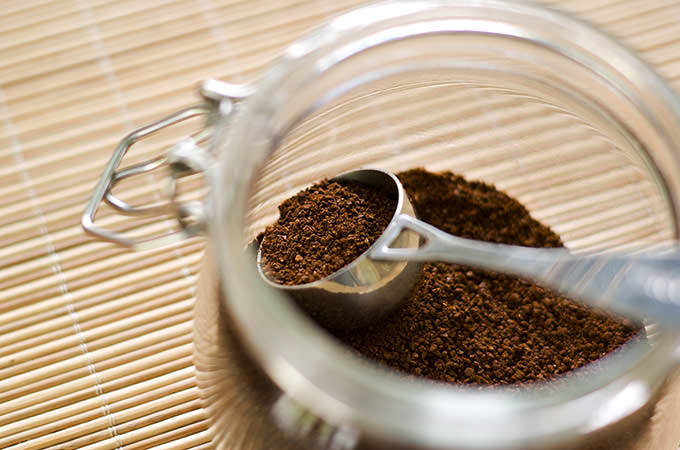
9. Coffee
Whoever though of placing coffee in the fridge? When refrigerated, coffee loses its flavor and it may take on some smells of other food in the fridge much like a sponge, and it will never go back to its true flavor and smell.
Another problem with storing coffee in the fridge is moisture. With the instant change of temperature, moisture will begin to come off the coffee and de-saturate the flavor. This goes for both bean and ground form.
Check out the most popular Coffee Containers on Amazon
Keep your coffee in a dark and cool place so it retains its freshness and full flavor, but if you have large quantities of it you can put it in the freezer.
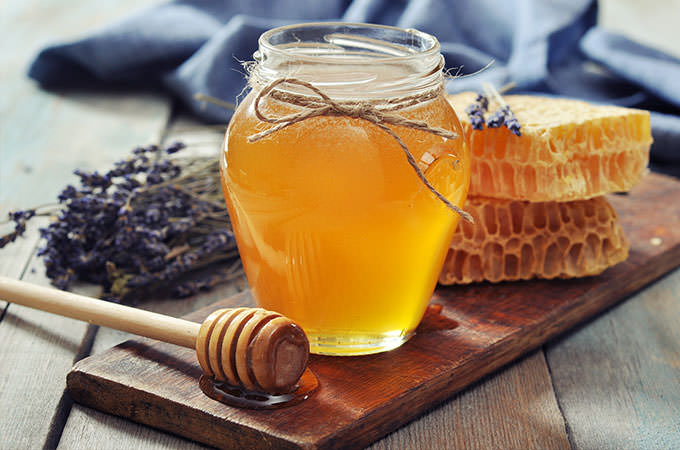
10. Honey
There’s absolutely no need for keeping your honey in the fridge. The only precaution measure you should take is to make sure that the lid is tightly sealed.
By doing so, your honey will be good practically forever. And we do mean forever.
If you would to stumble upon a 1000-year-old honey jar, the honey in it would be as fresh as it was the day that it was put in that same jar. However, if you keep honey in the refrigerator – it may crystallize.
Great selection of Honey Jars – Click here
This will also turn the honey into an almost dough-like form, which will also make it quite the challenge for scooping.

11. Oranges And Limes
How did humans stumble upon this idea at all? Oranges and limes should be stored at room temperatures and on your kitchen counter preferably – never in the fridge.
The cold air from the refrigerator will damage the quality of these delicious, healthy fruits and thus ruin them for any future good use.
Forget about making a salad, some lemonade, or just nibbling on them and getting you Vitamin C levels higher.
Click here to order a Citrus Juicer
Also, when storing them in a bowl on your counter, also make sure not to keep them too close to one another. That will make them mold more quickly.
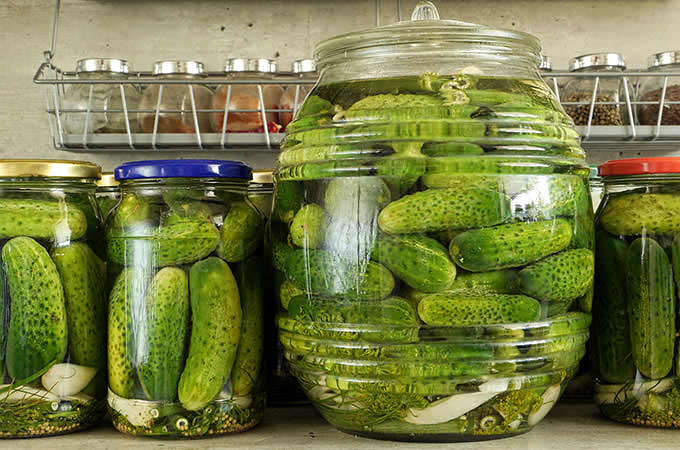
12. Pickles
There’s absolutely no need for keeping your pickle jar in the fridge. Pickles are really high in preservatives, mainly vinegar, which ensures that they’re crisp and delicious at all times. That’s why they’re usually kept in the pantry.
The only problem with pantry-kept pickle is that some people really like their pickles cold, and the only way to reach that desired temperature is to keep them in the fridge.
If this is the case with you, make sure that you store them in the refrigerator door.
Jar Openers are available on Amazon – Click here
There’s no need for keeping them in the coldest places in the fridge, since the place in the door will keep them cool just enough and you’ll still have the much needed space in the “deep space” of your fridge for some items that require that particular spot more than pickles do.
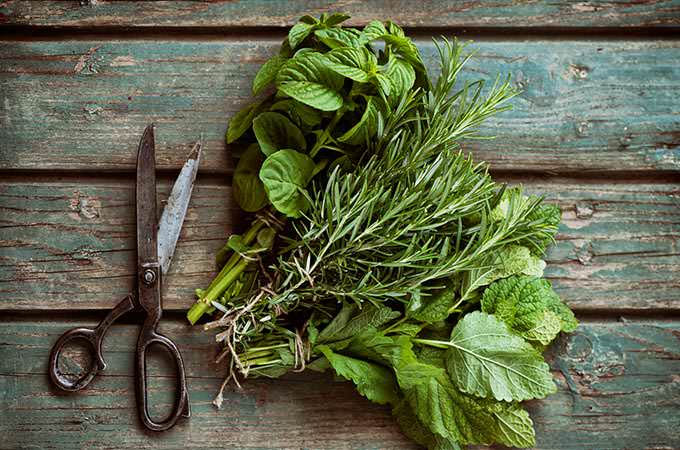
13. Fresh Herbs
Yup, this is not the case only with basil. There’s no need for placing those lovely fresh herb you just bought in the fridge.
The fridge’s cold air will just kill all of the flavors that made you fall in love with those herbs in the first place, and they will also dry out and absorb all the smells from your other fridge-stored foods.
Place your fresh herbs in a water-filled glass jar and keep them on the kitchen counter instead. Not only will you keep your herb fresh for days, but you will also up the ante on your kitchen’s looks.
Find the perfect Herb Container on Amazon
If you however, insist on refrigerating you herbs for some reason, make sure that you wrap them up tightly or put them in an air-tight container.
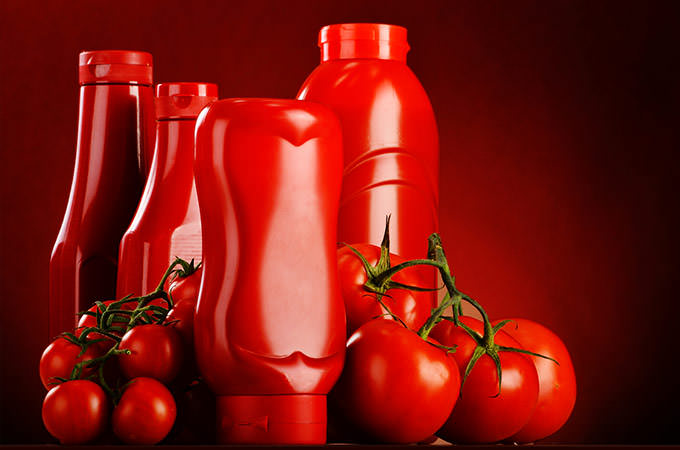
14. Ketchup
This may come as a surprise, but there’s actually no need for keeping your favorite condiment in the fridge, even after you’ve opened and used it for the first time. Instead, you can just keep it in your pantry along with you pickles.
Much like those delicious sour green vegetables, ketchup contains huge amounts of vinegar and preservatives which ensured that it won’t go off even when not kept in the fridge.
It may make more sense if you think about those small ketchup packs you get in fast-food restaurants.
Check out Condiment Containers – Click here
Do you really think they’re kept in the fridge? Just think how many fridges would be needed just for that!
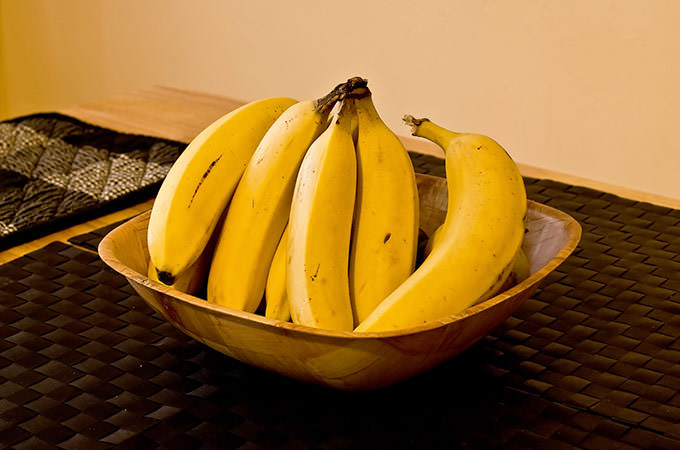
15. Bananas
Much like avocados, bananas shouldn’t be kept in the fridge unless they’re already ripe. If you prefer buying them while they’re still not ripe, do not put them in the fridge unless you want to end up with unripe bananas.
Fridges stop the ripening process, thus basically freezing the fruit (and vegetables) in time.
They just won’t be any riper than they were since the very moment you put them in the fridge. However, if you like your bananas a bit more green, then go right ahead – they’ll stay that way for a pretty long time.
If these yellow fruits are already ripe to the amount you want them to be, there’s a place for them in the refrigerator.

